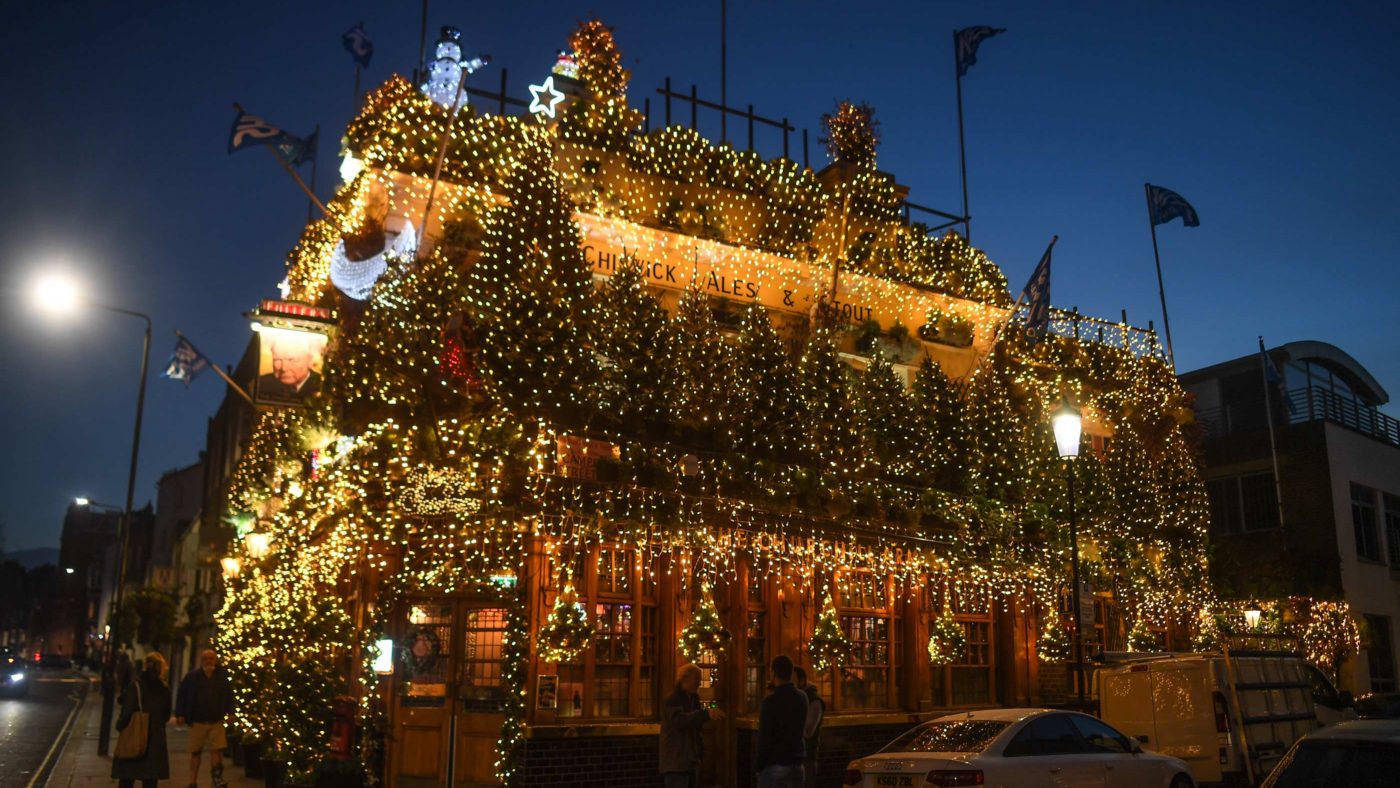It is that time of the year where we are told by the liberal-left commentariat that reservations over the policing of the term ‘Christmas’ are simply a figment of right-wing imagination. While it’s certainly the case that some of this stuff has been overblown (remember ‘Winterval’ anyone?), that doesn’t mean it’s not happening at all.
Indeed, there are clear recent cases of institutional efforts to marginalise the use of ‘Christmas’ in the name of ‘equality’, ‘diversity’, and ‘inclusion’. Plans for a public health campaign urging students not to ‘take Covid home for Christmas’ were vetoed by officials because, apparently, ‘the Government campaign needs to be inclusive and some religions don’t celebrate Christmas’.
We see the same absurd attempt at political correctness on the continent, where the European Commission developed internal communication guidelines that proposed substituting the phrase “Christmas period” with “holiday period”. The European Commissioner for Equality, Helena Dalli, said the draft proposals were designed to celebrate continental diversity and showcase the ‘inclusive nature of the European Commission’. These drafted guidelines were retracted by the Commission after robust interventions were made by Italian conservative politicians and The Vatican.
As with so much of the British and European cultural zeitgeist, the idea that we should substitute a perfectly inoffensive phrase with a bland ‘Happy Holidays’ or ‘Season’s Greetings’ feels very much like an American import – and one that doesn’t chime with British traditions in the slightest.
More to the point, suggesting that such a change is respectful to Britain’s religious minorities who may be offended by phrases like ‘Merry Christmas’ is clearly nonsense. Not only does it fail a basic smell test – have you ever actually heard someone say they were offended by being wished a Merry Christmas? – but there is no existing survey data which supports that idea either. I very much doubt that expressions of outrage over the term ‘Christmas’ are dominating conservations in the Muslim, Hindu, Sikh, Buddhist, and Jewish communities in my own multi-faith community in Luton. (There’s also an obvious linguistic point here, that ‘Christmas’ has long been both a religious festival and a catch-all term for end of year festivities, for people of all faiths and none.)
It’s baffling to think who the people who come up with this stuff about ‘inclusivity’ think they are representing, because it’s certainly not traditional religious minorities living in Britain. Indeed, an over-zealous politics of ‘inclusion’ actually threatens to do the very opposite of what it intends, both by irritating ordinary Brits who don’t understand why any of this is an issue, and by implying that minority groups are in a permanent state of offence-seeking.
In fact, most ethnic minority Brits, much like everyone else, are patriotic, resilient, and appreciative of the religious freedoms afforded under British democracy. They are certainly not the disaffected and hyper-sensitive monolithic bloc that some on the modern identitarian left would lead us to believe.
But the cynic in me suspects that there is a band of mainstream ‘progressive’ activists, including white-collar ‘diversity professionals’ in the public sector, that ‘utilises’ ethnic and religious minorities to peddle their US-style grievance grift – a phenomenon I’ve referred to elsewhere as the ‘grievance-industrial complex’. Language policing of the ‘Happy Holidays’ variety not only misrepresents the views of ethnic minority groups, but stokes up resentment among traditional-minded Brits, especially those in provincial working-class communities.
The great irony of all of this is that Christmas itself is anything but an exclusionary or alienating religio-cultural festival. In Britain, it is the exact opposite. For many Brits from different walks of life, Christmas is simply a period for spending time with their loved ones, reflecting on the past year’s events, and appreciating the good things in life. Likewise Christmas feasts, festivals and parties are enjoyed by a variety of people, pretty much regardless of how committed a churchgoer they might be.
And, crucially, this wonderfully inclusive Christmas culture – on show in inner cities and multi-faith towns like my own – is something that has developed organically, without the slightest need for people to be told how to interact with one another. That in itself should be celebrated and viewed as a source of national pride.
And on that final note – Merry Christmas!
Click here to subscribe to our daily briefing – the best pieces from CapX and across the web.
CapX depends on the generosity of its readers. If you value what we do, please consider making a donation.


